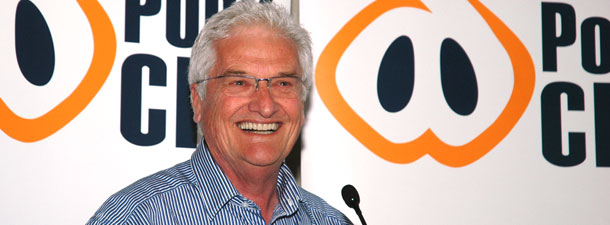 Research projects demonstrating quality, system changing science that could successfully be adopted by Australia’s pork industry will be considered for funding by the CRC for High Integrity Australian Pork, which called for proposals on March 1.
Research projects demonstrating quality, system changing science that could successfully be adopted by Australia’s pork industry will be considered for funding by the CRC for High Integrity Australian Pork, which called for proposals on March 1.
The CRC’s Expert Scientific Groups met in January and identified research priorities, with most activities in the second round of funding directed at Programs 2 and 4.

The CRC for High Integrity Australian Pork has four programs:
-
Confinement free sow and piglet management
-
Herd health management
-
Healthy pork consumption
-
Carbon-conscious nutrient inputs and outputs
Program 2 priorities include developing disease risk assessment systems, non antibiotic disease amelioration strategies and reducing pathogen loads in commercial facilities.
Program 4 priorities include identifying and evaluating algal biomass as a feed for pigs and maximising the efficiency of methane production from anaerobic ponds.
Project proposals must be lodged with the CRC by March 31, with appropriate projects then recommended for funding by the Expert Scientific Groups on May 14 before being put to the CRC’s Board in June, with successful applicants advised thereafter.
Applicants wishing to respond to the call for projects should visit the Pork CRC website www.porkcrc.com.au and then go to the relevant program link.
More details on project milestones and objectives and base-funded facilities can be obtained from the website, or by contacting Pork CRC CEO, Dr Roger Campbell,
Tel 08 8303 7683, or Research Manager, Graeme Crook, Tel 08 8303 7973.

Dr Campbell announced that the Pork CRC had again also allocated funding for Innovation Awards. These 12 month projects, with budgets up to $50,000, represent genuine innovation, may fill in knowledge gaps or investigate new science or theories.

“The CRC for High Integrity Australian Pork is all about making a difference and positioning the Australian pork industry and its products as high integrity, welfare optimal, premium quality, safe, nutritious and highly sought after here and overseas.
“Importantly, our pork also needs to be produced while conserving energy and water, minimising greenhouse gas emissions and maintaining efficiency and cost of production at a level that encourages investment, growth and sustainability,” Dr Campbell said.
March 8, 2012 - Pork CRC


